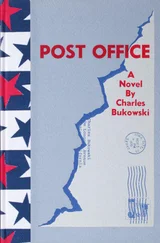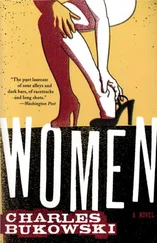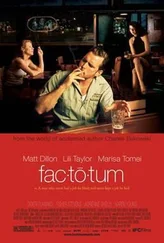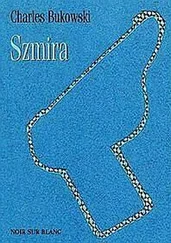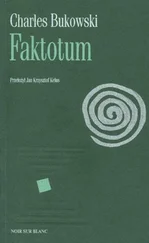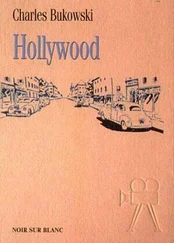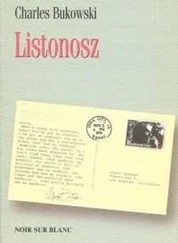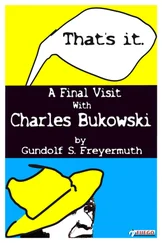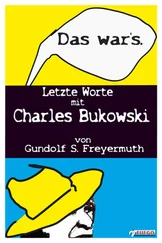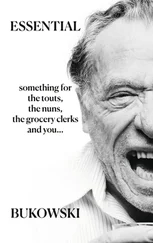Charles Bukowski
Ham On Rye
The first thing I remember is being under something. It was a table, I saw a table leg, I saw the legs of the people, and a portion of the tablecloth hanging down. It was dark under there, I liked being under there. It must have been in Germany. I must have been between one and two years old. It was 1922. I felt good under the table. Nobody seemed to know that I was there. There was sunlight upon the rug and on the legs of the people. I liked the sunlight. The legs of the people were not interesting, not like the tablecloth which hung down, not like the table leg, not like the sunlight.
Then there is nothing… then a Christmas tree. Candles. Bird ornaments: birds with small berry branches in their beaks. A star. Two large people fighting, screaming. People eating, always people eating. I ate too. My spoon was bent so that if I wanted to eat I had to pick the spoon up with my right hand. If I picked it up with my left hand, the spoon bent away from my mouth. I wanted to pick the spoon up with my left hand.
Two people: one larger with curly hair, a big nose, a big mouth, much eyebrow; the larger person always seeming to be angry, often screaming; the smaller person quiet, round of face, paler, with large eyes. I was afraid of both of them. Sometimes there was a third, a fat one who wore dresses with lace at the throat. She wore a large brooch, and had many warts on her face with little hairs growing out of them. "Emily," they called her. These people didn't seem happy together. Emily was the grandmother, my father's mother. My father's name was "Henry." My mother's name was "Katherine." I never spoke to them by name. I was
"Henry, Jr." These people spoke German most of the time and in the beginning I did too.
The first thing I remember my grandmother saying was, "I will bury all of you!" She said this the first time just before we began eating a meal, and she was to say it many times after that, just before we began to eat. Eating seemed very important. We ate mashed potatoes and gravy, especially on Sundays. We also ate roast beef, knockwurst and sauerkraut, green peas, rhubarb, carrots, spinach, string beans, chicken, meatballs and spaghetti, sometimes mixed with ravioli; there were boiled onions, asparagus, and every Sunday there was strawberry shortcake with vanilla ice cream. For breakfasts we had french toast and sausages, or there were hotcakes or waffles with bacon and scrambled eggs on the side. And there was always coffee. But what I remember best is all the mashed potatoes and gravy and my grandmother, Emily, saying, "I will bury all of you!"
She visited us often after we came to America, taking the red trolley in from Pasadena to Los Angeles. We only went to see her occasionally, driving out in the Model-T Ford.
I liked my grandmother's house. It was a small house under an overhanging mass of pepper trees. Emily had all her canaries in different cages. I remember one visit best. That evening she went about covering the cages with white hoods so that the birds could sleep. The people sat in chairs and talked. There was a piano and I sat at the piano and hit the keys and listened to the sounds as the people talked. I liked the sound of the keys best up at one end of the piano where there was hardly any sound at all - the sound the keys made was like chips of ice striking against one another.
"Will you stop that?" my father said loudly.
"Let the boy play the piano," said my grandmother. My mother smiled.
"That boy," said my grandmother, "when I tried to pick him up out of the cradle to kiss him, he reached up and hit me in the nose!"
They talked some more and I went on playing the piano.
"Why don't you get that thing tuned?" asked my father. Then I was told that we were going to see my grandfather. My grandfather and grandmother were not living together. I was told that my grandfather was a bad man, that his breath stank.
"Why does his breath stink?"
They didn't answer.
"Why does his breath stink?"
"He drinks."
We got into the Model-T and drove over to see my Grandfather Leonard. As we drove up and stopped he was standing on the porch of his house. He was old but he stood very straight. He had been an army officer in Germany and had come to America when he heard that the streets were paved with gold. They weren't, so he became the head of a construction firm.
The other people didn't get out of the car. Grandfather wiggled a finger at me. Somebody opened a door and I climbed out and walked toward him. His hair was pure white and long and his beard was pure white and long, and as I got closer I saw that his eyes were brilliant, like blue lights watching me. I stopped a little distance away from him.
"Henry," he said, "you and I, we know each other. Come into the house."
He held out his hand. As I got closer I could smell the stink of his breath. It was very strong but he was the most beautiful man I had ever seen and I wasn't afraid. I went into his house with him. He led me to a chair.
"Sit down, please. I'm very happy to sec you."
He went into another room. Then he came out with a little tin box.
"It's for you. Open it."
I had trouble with the lid, I couldn't open the box.
"Here," he said, "let me have it."
He loosened the lid and handed the tin box back to me. I lifted the lid and here was this cross, a German cross with a ribbon.
"Oh no," I said, "you keep it."
"It's yours," he said, "it's just a gummy badge."
"Thank you."
"You better go now. They will be worried."
"All right. Goodbye."
"Goodbye, Henry. No, wait…"
I stopped. He reached into a small front pocket of his pants with a couple of fingers, and tugged at a long gold chain with his other hand. Then he handed me his gold pocket watch, with the chain.
"Thank you. Grandfather…"
They were waiting outside and I got into the Model-T and we drove off. They all talked about many things as we drove along. They were always talking, and they talked all the way back to my grandmother's house. They spoke of many things but never, once, of my grandfather.
I remember the Model-T. Sitting high, the running boards seemed friendly, and on cold days, in the mornings, and often at other times, my father had to fit the hand-crank into the front of the engine and crank it many times in order to start the car.
"A man can get a broken arm doing this. It kicks back like a horse."
We went for Sunday rides in the Model-T when grandmother didn't visit. My parents liked the orange groves, miles and miles of orange trees always either in blossom or full of oranges. My parents had a picnic basket and a metal chest. In the metal chest were frozen cans of fruit on dry ice, and in the picnic basket were weenie and liverwurst and salami sandwiches, potato chips, bananas and soda-pop. The soda-pop was shifted continually back and forth between the metal box and the picnic basket. It froze quickly, and then had to be thawed.
My father smoked Camel cigarettes and he knew many tricks and games which he showed us with the packages of Camel cigarettes. How many pyramids were there? Count them. We would count them and then he would show us more of them.
There were also tricks about the humps on the camels and about the written words on the package. Camel cigarettes were magic cigarettes.
There was a particular Sunday I can recall. The picnic basket was empty. Yet we still drove along through the orange groves, further and further away from where we lived.
"Daddy," my mother asked, "aren't we going to run out of gas?"
"No, there's plenty of god-damned gas."
"Where are we going?"
"I'm going to get me some god-damned oranges!"
My mother sat very still as we drove along. My father pulled up alongside the road, parked near a wire fence and we sat there, listening. Then my father kicked the door open and got out.
Читать дальше

